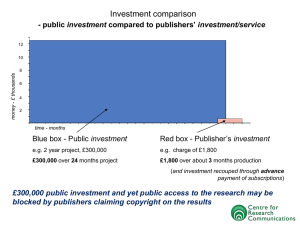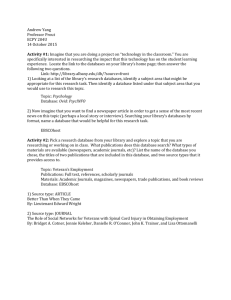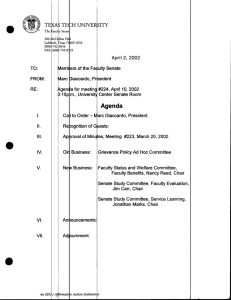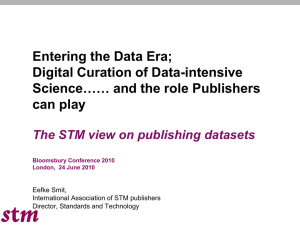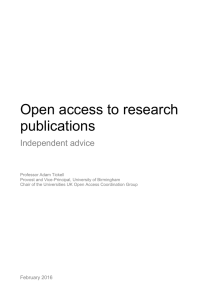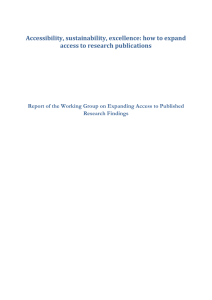January 10, 2013 ROBERT POWELL Chair, Academic Council
advertisement
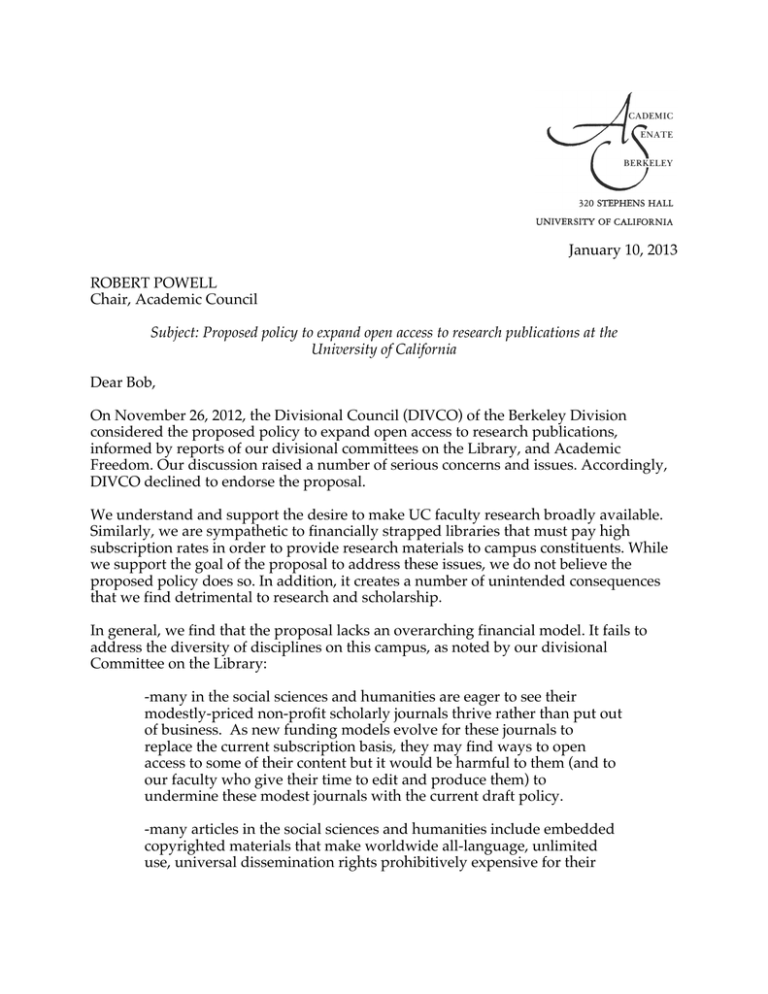
January 10, 2013 ROBERT POWELL Chair, Academic Council Subject: Proposed policy to expand open access to research publications at the University of California Dear Bob, On November 26, 2012, the Divisional Council (DIVCO) of the Berkeley Division considered the proposed policy to expand open access to research publications, informed by reports of our divisional committees on the Library, and Academic Freedom. Our discussion raised a number of serious concerns and issues. Accordingly, DIVCO declined to endorse the proposal. We understand and support the desire to make UC faculty research broadly available. Similarly, we are sympathetic to financially strapped libraries that must pay high subscription rates in order to provide research materials to campus constituents. While we support the goal of the proposal to address these issues, we do not believe the proposed policy does so. In addition, it creates a number of unintended consequences that we find detrimental to research and scholarship. In general, we find that the proposal lacks an overarching financial model. It fails to address the diversity of disciplines on this campus, as noted by our divisional Committee on the Library: -many in the social sciences and humanities are eager to see their modestly-priced non-profit scholarly journals thrive rather than put out of business. As new funding models evolve for these journals to replace the current subscription basis, they may find ways to open access to some of their content but it would be harmful to them (and to our faculty who give their time to edit and produce them) to undermine these modest journals with the current draft policy. -many articles in the social sciences and humanities include embedded copyrighted materials that make worldwide all-language, unlimited use, universal dissemination rights prohibitively expensive for their authors, and dangerous (to the authors) to plant in an archive dedicated to dissemination. In addition, we noted that scholarly publications range from large, for-profit journals, to small not-for-profit publications, to those in which the authors support the cost of publication. The proposed policy does not take this complexity into consideration. We agree with the Committee on Academic Freedom: We believe that the proposed policy is too broad, in that it seems to group all publishers together into a common, negative, category … a primary concern is that the proposed policy could seriously undermine the financial position of publishers who are mindful of the challenges facing the University, resulting in unintended ‘collateral damage’ to precisely those publishers whose success the Faculty might wish to encourage. In sum, we do not support the current proposal. Minimally, the proposal should include an opt-out option. Optimally, UC should develop an approach specifically targeted to address concerns about the largest for-profit publishers. We believe there are a number of alternatives that could be explored, such as developing consortia with other research universities to negotiate journal prices, and compacts with major funders (i.e., National Institutes of Health and National Science Foundation) regarding publication and dissemination of research findings. Sincerely, Christina Maslach Chair, Berkeley Division of the Academic Senate Professor of Psychology Cc: Martha Winnacker, Executive Director, Academic Senate Margaretta Lovell, Chair, Committee on the Library David Steigmann, Chair, Committee on Academic Freedom Diane Sprouse, Senate Analyst, Committee on the Library 2

